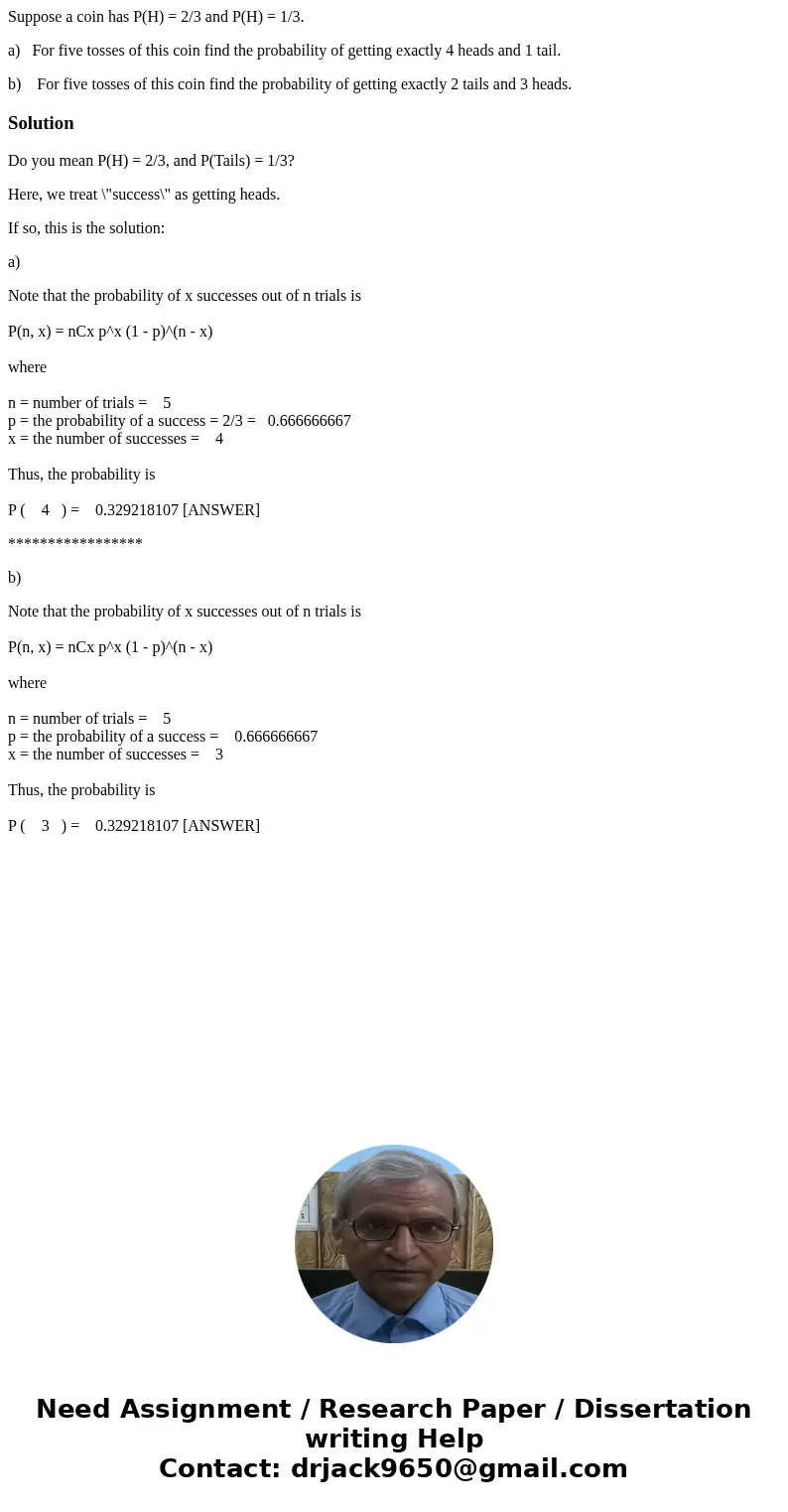Suppose a coin has PH 23 and PH 13 a For five tosses of th
Suppose a coin has P(H) = 2/3 and P(H) = 1/3.
a) For five tosses of this coin find the probability of getting exactly 4 heads and 1 tail.
b) For five tosses of this coin find the probability of getting exactly 2 tails and 3 heads.
Solution
Do you mean P(H) = 2/3, and P(Tails) = 1/3?
Here, we treat \"success\" as getting heads.
If so, this is the solution:
a)
Note that the probability of x successes out of n trials is
P(n, x) = nCx p^x (1 - p)^(n - x)
where
n = number of trials = 5
p = the probability of a success = 2/3 = 0.666666667
x = the number of successes = 4
Thus, the probability is
P ( 4 ) = 0.329218107 [ANSWER]
*****************
b)
Note that the probability of x successes out of n trials is
P(n, x) = nCx p^x (1 - p)^(n - x)
where
n = number of trials = 5
p = the probability of a success = 0.666666667
x = the number of successes = 3
Thus, the probability is
P ( 3 ) = 0.329218107 [ANSWER]

 Homework Sourse
Homework Sourse